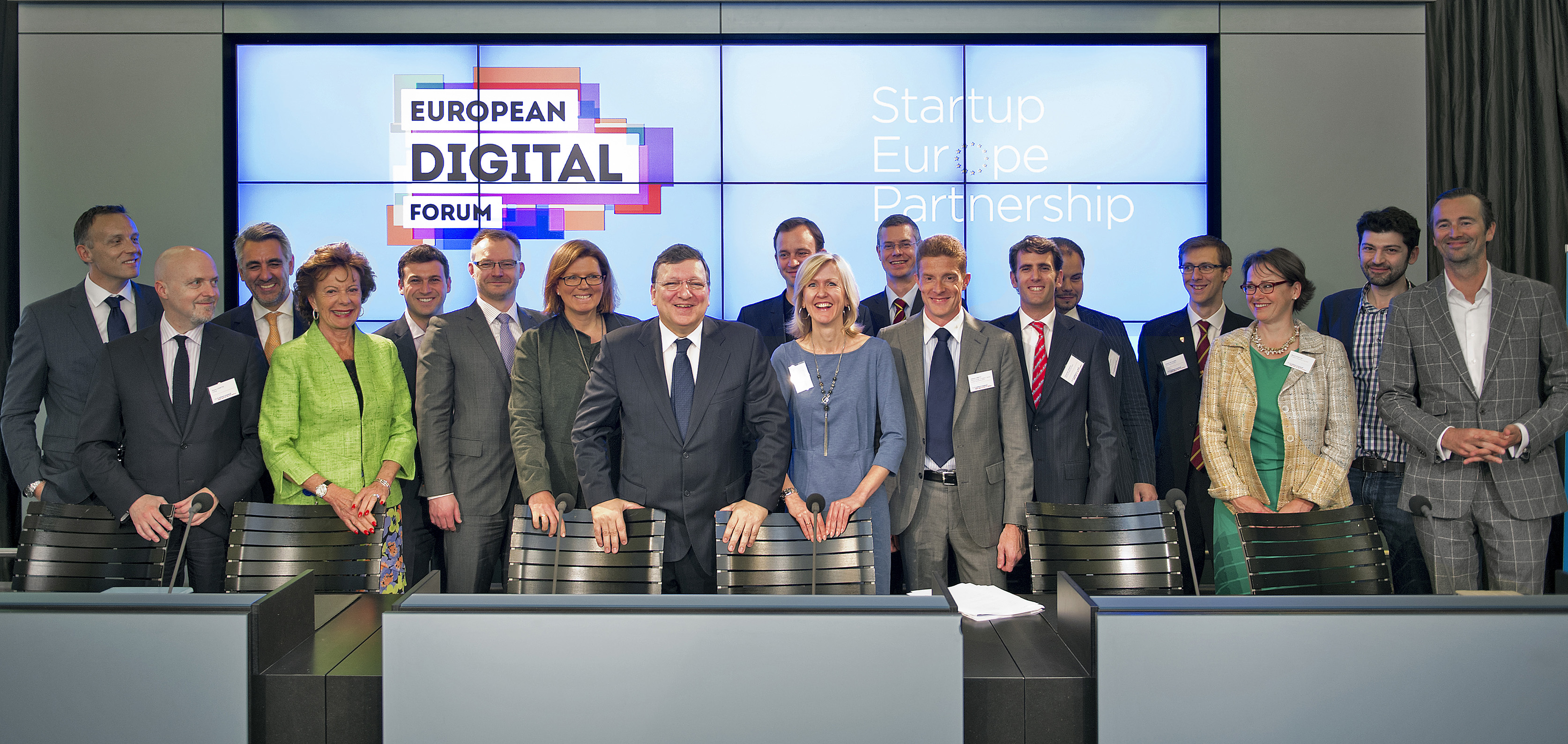By Xenia Elsaesser, Think Big Europe Programme Development, Telefónica
27 January 2014: Last week we brought together a selection of experts to pick their brains on how Think Big can best prepare young people in Europe for survival in the digital world.
Our discussion was introduced by Steve Alder, CEO Dynamic Insights Telefonica Digital, who explained the increasing importance of ‘becoming digital’ for a company like Telefonica, and the priority that the company is giving it. We then moved on to a roundtable discussion where we gathered insights from our guests.
All participants highlighted the importance of online skills accreditation: in an age where most young Europeans have a university education, employers are finding that a degree is no longer a differentiator of talent. Instead they want to see proof that young people have the skills needed for the job, and a badge fulfils this requirement.
Mozilla Open Badges are currently seen as the most credible online accreditation system, but theirs is still a fledgling enterprise: it will be a priority for Mozilla to gain governments and big employers endorsing the badge system before this becomes an attractive tool for young people to prove their worth in the job-search.
While some structure is lacking around the education of young developers, learning to code and build websites was not considered a priority for the general population, due to the rate at which programming languages change and new methods arise. Nevertheless all young people would benefit from a basic literacy in how the web works, and what logic systems are generally applied across programming frameworks. This need is not currently being addressed by schools, and in the case of the UK it remains to be seen how well the new coding curriculum, to be introduced in schools in September 2014, can fill the gap.
The rate of change in the digital world poses a broader challenge, in that it is difficult to prepare young people for jobs that do not yet exist. It was universally acknowledged that there is not enough publicity or understanding about what job opportunities there are in the digital sector. A particular difficulty is that most young people automatically gravitate towards “Brand Names” –recognisable big corporations, when in fact over 80% of employment opportunities are in the small to medium sized enterprises (SMEs).
Most participants agreed that, while coding will be of interest to some, it is of most urgency that all young people are equipped with transferable skills like versatility, grit, adaptability, independence and creativity. While today’s curriculums are based on knowledge consumption, information and methods are changing so fast that much knowledge acquired during schooldays becomes irrelevant by the time young people enter the job market. Instead of focusing on content learned, to prepare young people for the future, we need to focus on teaching them how to use online tools, how to be resourceful, apply logic and learn quickly.
An armoury of solid life-skills, transmitted in a digital environment, will enable young people to grapple a place for themselves in an evolving digital landscape where they can hope to perform multiple jobs throughout their lifetimes, the titles and content of which are yet to be imagined.
Participants and Quotes
“The rules are being re-written. In business today we talk about the strength of social, new business models disrupting old incumbents, and innovation coming from everywhere.” Steve Alder, Telefonica Digital
“This is the dynamic world you work in in digital. You’ll change jobs a lot. You don’t get a job for life. Are you creating a generation of innovators?” John Spindler, CEO, Capital Enterprise
“In terms of transitioning from school to employment, there is an information gap too. Young people don’t know what’s out there for them in digital companies” Ian Fordham. Founder, EdTech Accelerator
“Open Badges is a decentralised, competitive technology. It’s about decoupling the authority away from assessments, and working with charities to build this alternative currency” Tim Riches, CEO, DigitalMe
“Mozfest is the best school I’ve been to. If you make this about creative skills rather than digital, then digital will come.”
Bryan Mathers, Founder, Wapisasa
“You have to engage with the teaching population. They are the missing piece.” Ben Barton, CEO, Zondle
“We can’t reverse engineer career paths when preparing for jobs that don’t yet exist. But digital skills are skills for success in everything, with an acknowledgment of the fact that digital supports everything.” Will Bentinck, Key Account Manager, Enternships
“There’s this new trend of coding, and code clubs. Coding may become automated in the next years, organisations will automatically be able to feed information into algorithms that create can code. I wonder whether we’re teaching kids skills that will become out-dated. Putting all these skills under a digital banner restricts the debate around them. What really makes great entrepreneurs? It’s risk takers, problems solvers.” Richard Taylor, MD, Ed-invent.com
“Do we have to incentivise young people to take part in skills-building activities? Or is it enough if they know it will have legitimacy with employers?” Sophia Koniarska, Telefonica Think Big
“How do we inspire young people? How do we convince them that this is worth their while?” Steve Wright, Telefonica Think Big
“Currently ICT curriculums in schools are about managing office programmes. We need to help young people understand what their job options are in STEM subjects, signpost people towards” Kriss Baird, Technologist, IC tomorrow – Technology Strategy Board
“It frustrates me that digital is always equated to coding. It’s not about Ruby on Rails [programming framework], it’s about logical thinking.” Chirag Patel, Founder, Eduvee
“A focus on early intervention, with primary aged children would deliver long term results for the digital skills agenda.” Tom Kenyon, Director of Education, Nesta


![[Radar7] Global M2M revenues to hit how much by 2018? Whoa.](https://en.blogthinkbig.com/wp-content/uploads/sites/5/2014/01/Light-dance_final-bk_1200px_W.jpg?resize=p%2Co)






